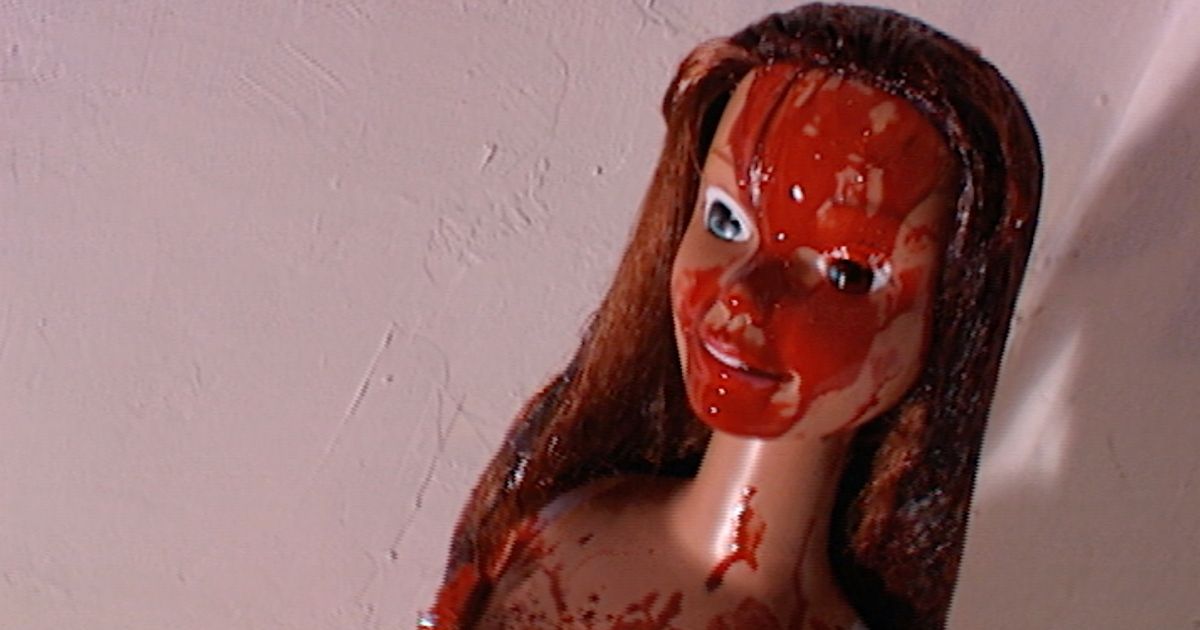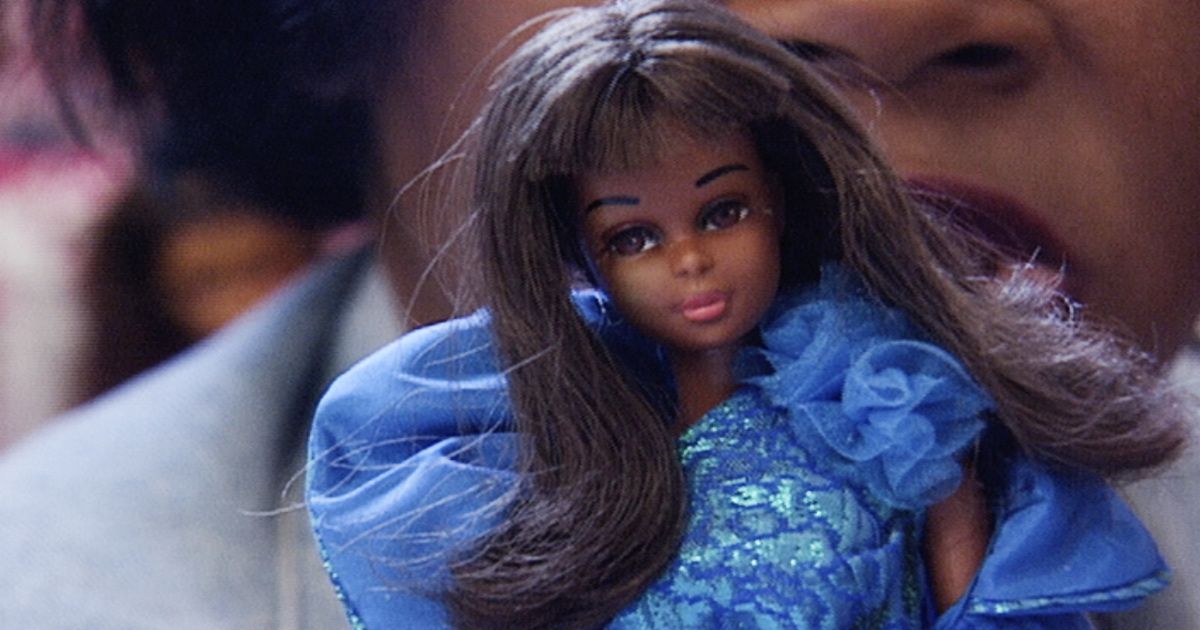Can Barbie save the world? It’s sure looking that way as we head into a big, bodacious summer of Barbie, folks. Of course, there’s Greta Gerwig’s highly anticipated release of Barbie, hitting theaters in July. Before that — like, right now — we celebrate the 25th anniversary of director Susan Stern’s revealing documentary, Barbie Nation: An Unauthorized Tour. The film garnered great reviews when it was released back in 1998. Now, Stern’s Director’s Cut version gets an exclusive online premiere on Prime Video, Apple TV, and Google Play on June 27.
Here’s what to expect: Barbie rocks. Not just a plaything, Barbie represents a lot of ideas to many people. Stern’s iconic cult classic originally turned heads for how it explored the depths of everything Barbie, dream house and all. It also shined the spotlight on the peculiar ways in which people have embraced the famous doll throughout history. No doubt the 411 about Barbie’s sassy rise from a German sex toy to becoming the savior and goddess of Mattel sparked interest, too.
But in the Director’s Cut, viewers can expect all-new scenes featuring such things as “Black Barbie” and even some Ken on Ken action. Oh my. The hope, according to Stern, is to “bear witness” to the extraordinary evolution of a cultural phenomenon. Discovering the secrets behind the never-ending fascination of Barbie is a big plus, too. Susan Stern shared more about the doc and her hopes for it now In this exclusive MovieWeb interview.
All About Barbie
Susan Stern also produced Barbie Nation: An Unauthorized Tour, which features, among many other things, Ruth Handler, the ingenious American businesswoman who invented Barbie in 1959. Look for candid interviews with RuPaul, Ruth Handler’s husband, Elliot Handler, the co-founder of Mattel, Barbara (Handler) Segal, Sandi Holder, Franklin Lim Liao, Kerry Muller, and others.
“Barbie Nation is a very happy, loving film, and people walk out of it feeling inspired by the creativity of so many people,” said Stern of the project. “People do really different and often strange things with Barbie dolls, but it’s such an act of creativity. And the whole story of the creation of Barbie is really this love story of Ruth and Elliot Handler. And that makes the film very joyful.”
Elliot and Ruth, in fact, would go on to develop some of the most popular and highest-selling toys in American history, including Barbie, Chatty Cathy, Creepy Crawlers, and Hot Wheels.
“Because Barbie Nation is the essential history of the Barbie doll, Ruth and Elliot Handler are in it. Their love story is incredible, and Ruth’s story is incredible. She’s a woman who maybe didn’t break the glass ceiling but […] You know, somebody in the film says they think the glass ceiling was put down to take care of Ruth, because she was such an amazing force in American business. I hope people learn that history. It’s a really exciting history. It’s a great business story. It’s a great love story.”
People Do WHAT with Barbie Dolls?
It’s not all pastel pinks and plastic car rides with hunky Ken under the Malibu sun, folks. Several revealing sequences in Barbie Nation illuminate a more feisty side to the iconic doll, and what, in fact, Barbie represents to some people. “I collected an amazing amount of Barbie weirdness, and I think that will be surprising to people. There are definitely some adventures with the sexual stuff people did with Barbies in the documentary,” said Stern. “I was surprised by Barbie being such a ‘sexual’ doll for some people. I don’t know why I was surprised, but I was, especially by how many different people were doing detailed sexual things with Barbie dolls.”
The doc covers that in respectful ways of course and that particular element isn’t the main through line in the film. Stern also noted that her film is primed for a perfect release, regardless of the curious link to Great Gerwig’s Barbie.
“It’s an ideal time for this doc to be seen because we’re in a time of undeniable backlash, a time when books are being banned, when drag shows are being banned,” added Stern. “It’s a much more difficult time than when this film was made. It’s a perfect time to look back and appreciate something when times weren’t so fraught.”
In addition to featured clips of Handler, scholars, fun folks, and even Stern’s own daughter in Barbie Nation, the filmmaker noted one of the film’s original bold revelations. “Children are innocent in this wonderful way. All these people who want to ban things they don’t understand may not realize that children are truly innocent. They don’t impute the negativity that some adults impute to dolls and to sexuality. Children are wholesome and that is not injured by a wholesome attitude towards sexuality. I really like that Barbie has a wholesome attitude to it and with that wholesome attitude, we can play with various sexual identities, we can play with various sexual fantasies, and that’s not harmful.”
She quickly added: “We have a society now which is saying that that’s harmful and that it’s harmful to discuss gender, harmful to discuss a body image, harmful to discuss race. Barbie Nation says It’s not harmful to talk about these things. It’s healthy.”
Hey, Don’t Blame the Doll!
Recently, Susan Stern received an email from one of her cousins who informed her that she was not allowed to play with Barbies when she was a kid because her mother thought they were too sexualized. “A lot of people don’t like Barbies. A lot of people hoped that Barbie Nation would be an anti-Barbie film because I’m a feminist,” said Stern, who elaborated.
But I mean, it’s not I don’t have that attitude towards Barbie. I don’t agree with the people who are so anti-Barbie. This is a little plastic toy. You know, the problems we have as human beings, whether it’s not feeling good about our bodies, or being forced into gender roles that we don’t like, these are problems caused by humans. They’re not caused by little plastic dolls. The doll is a tool. We can play with it. We can do all sorts of things with it, but I don’t blame the doll.
Interesting to note is how many LGBTQ people are featured in Barbie Nation, too. Stern says the documentary captures a certain level of freedom that was experienced in the late 1990s, a kind of hopefulness. This was, after all, several years before 9/11. “There’s been this reaction to that,” said Stern, “where people want to shut that hopefulness down now.”
As for everything else—from how the doc aptly reveals how healthy it was for young girls to explore themselves and their identity through Barbie to other things that lie outside the “conventional” box — Stern quickly clarifies:
“You know, when I say people do odd things with Barbie, that’s not really the point. I’m not making fun of anybody. I’m celebrating everybody in this film. I think what’s interesting is that even in 1998, people were being really nostalgic for this. And you see the inception of that ‘Make America Great Again’ movement that has now blossomed into this completely surreal, non-memory of what the past was really like. You see people dreaming of some sort of past. I’m proud of that, and I’m proud of what it reveals about how kids really play. And I’m proud of some of the interviews that people were willing to share with me—their deep feelings. There’s a Barbie player in the film, Allen, who talks about his partner’s death of from HIV/AIDS. And that’s just one of many really moving moments.”
The Director’s Cut of Barbie Nation: An Unauthorized Tour, will be available on Prime Video, Apple TV, and Google Play beginning June 27. You can fine more information about Barbie Nation here.
Stay connected with us on social media platform for instant update click here to join our Twitter, & Facebook
We are now on Telegram. Click here to join our channel (@TechiUpdate) and stay updated with the latest Technology headlines.
For all the latest Education News Click Here


